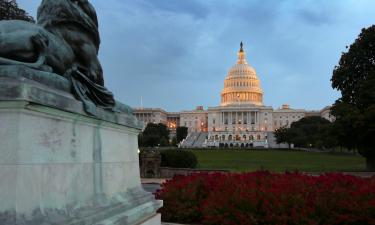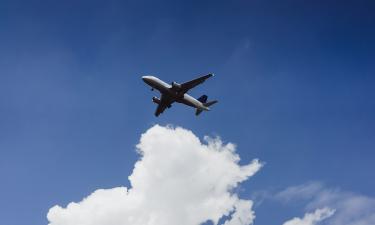Turkey's fraternity with Afghan Talibs destined for failure
The United States has left Afghanistan, and Turkey will try to take its place. The Turks do not agree with such a policy, and Recep Erdogan's rating dropped by ten percent in August.
What may hamper Erdogan's plans in Afghanistan
Ankara has participated in the military mission in Afghanistan from the very beginning. Not only did Turkey send 2,000 military men there, but also led the actions of the international coalition twice in the past six months.
One of the main tasks of the Turkish military was to ensure security of the Kabul airport; the Turks planned to stay there even after the withdrawal of the international contingent. This issue was discussed between Turkish President Recep Erdogan and US President Joe Biden.
It is now clear that Turkey has retained control over the airport. Turkish and Qatari technical specialists arrived there, and it appears that the Kabul airport will be guarded by Turkish PMCs. If this is the case, it means that the Turks have come to an agreement with the Taliban*.
The goal is to strengthen geopolitical positions
Controlling the Kabul airport is important for many reasons. Controlling the Kabul airport means controlling
- migration,
- drug trafficking,
- economy
- and geopolitics.
This spring, Turkey tried to arrange peace talks between the Taliban and the Afghan government on its territory, albeit to no avail. German Foreign Minister Heiko Maas had a meeting with his Turkish counterpart Mavlut Cavusoglu late last week, while NATO Secretary General Jens Stoltenberg said that Turkey could play a "key role" in the conflict.
Many in the West believe that the West will be able to establish contacts and mutual understanding with the Taliban* through the mediation of Turkey. Should this materialise, Ankara will get approval for further actions in Central Asia (hereinafter in the Middle East), which will considerably enhance its status as a geopolitical player.
What will prevent Turkey from becoming the main player in Afghanistan
Everything would be quite simple if it was not for:
- opinion of the Taliban*,
- opinion of the Turkish population,
- Erdogan's "multi-vector" nature.
The Talibs, from statements about their unwillingness to see "any foreign troops, subcontractors, advisers and instructors" on the territory of Afghanistan, have switched to statements about the Taliban* and the Turks being brothers in faith, and they could come to an agreement."
Taliban* spokesman Suheil Shahin said Turkey and China were the main partners of the Taliban* movement in the reconstruction of Afghanistan.
"The Islamic Emirate of Afghanistan needs friendship, support and cooperation with Turkey more than any other country," he said.
However, they are at the beginning of the journey, and a lot may change.
Turkish citizens do not really understand the reason why Ankara needs to stay in Afghanistan. On the contrary, many believe that more refugees will come — no one in Turkey is happy about such prospects ad Turkey is already home to over three million of them.
Ankara is trying to do everything to stop the influx of Afghan refugees. For example, Turkey strengthens its border with Iran, but such steps will not stop a new wave of refugees, Fadi Hakura, project manager for Turkey at London-based think tank Chatham House said.
An August poll by Metropoll showed that the approval of President Erdogan's policies declined by ten percent compared to July. Only 38 percent of Turkish citizens support Erdogan, whereas 51 percent of respondents do not approve of the work of their president.
The support among those voting for Erdogan's Justice and Development Party (AKP) has declined as well to 76 percent (81 percent in July). The electors' support among those voting for the Nationalist Movement Party (MHP) — the AKP's ally in the government coalition has dropped too. The number of those approving the activities of the Turkish president fell to 54.5 percent (76.8 percent in July).
"The last time when Erdogan's rating fell so low (37.5 percent) and elections were held in Turkey, the ruling party gained only 41 percent. The coalition was not created. After that terrible events began in Turkey — deadly terrorist attacks committed by PKK and Daesh*. After that, Erdogan's party, led by Davutoglu, could gain more than 49 percent in early elections and create the one-party government," the Turkish Agenda Telegram channel wrote.
It's not just the refugees. The Turks refused to support Erdogan in his agreement with the Taliban* about being "brothers in faith."
"There is nothing in Turkey that could come contrary to their (Taliban's*) faith," the Turkish president said.
Well-known film director and writer Ilyaz Salman wrote on Twitter that with the exception of a small percentage of radical Turks, even most of Erdogan's supporters do not want to live like in Afghanistan.
It is worthy of note that Turkey's relations with the West remain tense. Turkey is strongly determined to buy another S-400 division from Russia, Erdogan said. This "multi-vector" approach may deprive him of Western support and approval for actions in Afghanistan.
*terrorist organisations, banned in the Russian Federation.
Subscribe to Pravda.Ru Telegram channel, Facebook, RSS!





